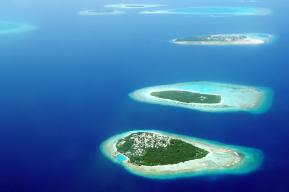Article
Community Media as Spaces of Resistance for Indigenous People

Youth Multimedia Room
The article was produced by the Youth Multimedia Room. The views and opinions expressed in this article are those of the contributors of the Youth Multimedia Room and do not represent the views of UNESCO or its partners. The designations concerning the legal status of any country, territory, city or area, or of its authorities, or concerning the delimitation of its frontiers or boundaries do not imply the expression of any opinion whatsoever on the part of UNESCO or its partners.
“As communities we have decided to organize ourselves to resume the tradition of being autonomous (…). This implies taking rights, exercising rights of freedom of expression, taking over our own media, report what is happening and what are the consequences in our territory”, said María Dolores Euseda, journalist for the community media Radio Dignidad of Honduras.
Several indigenous communities in Latin America have created community media - mainly radio - as a form of resistance against the decline of their population and the almost disappearance of their languages. Through these media, they also seek to expand the reach of the voices of indigenous peoples, women and immigrants, who suffer the consequences of the environmental crisis in the areas in which they reside.
"We were censored. The mainstream media said that we wanted to be a separate country. The only way for our brothers and sisters to communicate with each other (...) was to have our own radio”, said Daniel Zalazar, a Mapuche activist from Argentina who pointed out the importance of freedom of expression and the need to promote the voices of indigenous peoples. He added: “As long as there are social communicators committed to the environment, eager to promote interculturality and free expression, we will surely be contributing to a better world.”
Diego Cáceres and Macarena Jiménez




